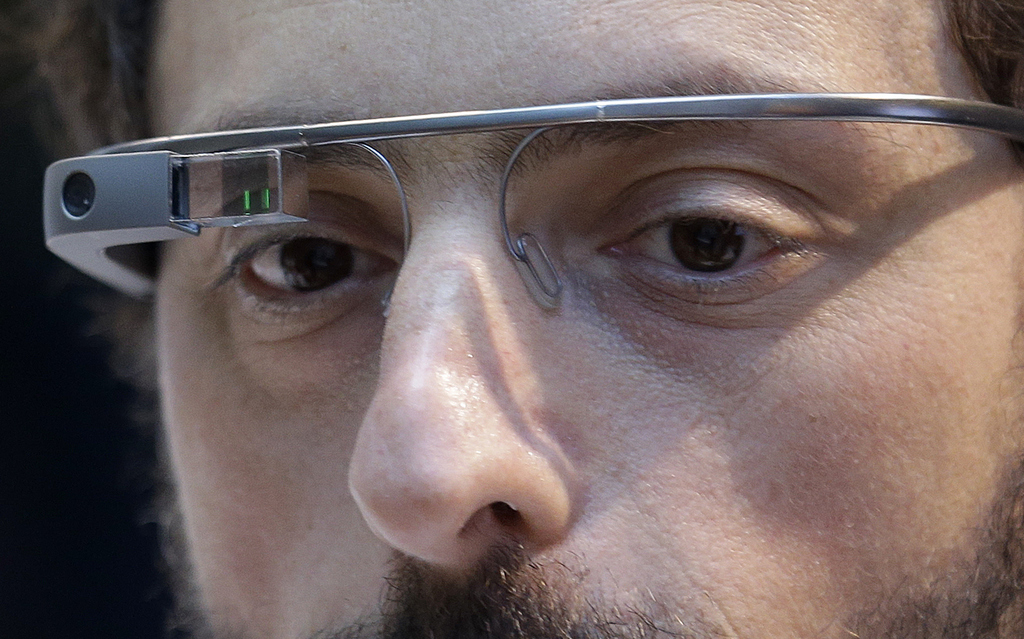Privacy officials raise concerns over Glass

The Swiss data protection commissioner and government privacy officials from a handful of other countries have written to Google to raise privacy concerns about its wearable computing eyewear, Glass.
Hanspeter Thür signed the letter sent to Larry Page, Google’s chief executive officer, along with commissioners from Canada, the Netherlands, Australia, New Zealand, Mexico and Israel.
“We would be very interested in hearing about the privacy implications of this new product and the steps you are taking to ensure that, as you move forward with Google Glass, individuals’ privacy rights are respected around the world,” the officials declared.
The glasses device, which is not yet on sale to the general public, connects to a user’s smartphone and can take photos and record video hands-free. It also allows the user to send text messages and make phone calls as well as access special apps via voice control and a tiny screen above the right eye.
“Fears of ubiquitous surveillance of individuals by other individuals, whether through such recordings or through other applications currently being developed, have been raised. Questions about Google’s collection of such data and what it means in terms of Google’s revamped privacy policy have also started to appear,” they wrote.
Eliane Schmid, spokeswoman at the Swiss Office of the Federal Data Protection and Information Commissioner, said Thür signed the letter as secretly recording videos was an infraction of privacy and intimacy and illegal in Switzerland.
“People have to be aware of the fact that filming as well as putting the sequences online without the consent of the person or persons concerned, is against the law,” she told swissinfo.ch.
In their letter the officials asked how Google was addressing “the broader social and ethical issues” raised by the device.
They added that details of how Google Glass worked and how Google might use the data the technology collects have so far mainly come from press reports that contain much speculation.
They lamented that Google has not yet contacted data protection authorities to discuss the privacy implications of Glass.
What’s the worry?
The officials say they understand that Google will not include facial recognition in Glass for now, but raised concerns about Google’s future facial recognition plans.
“We are aware that these questions relate to issues that fall squarely within our purview as data protection commissioners, as well as to other broader, ethical issues that arise from wearable computing,” they said.
A Google spokesperson told swissinfo.ch that the company was “thinking very carefully about how we design Glass because new technology always raises new issues”.
He added that Google’s Glass Explorer early adopter programme, which was testing the eyewear, would ensure that “users become active participants in shaping the future of this technology”.
Google faced similar questions to those posed by data protection officials at its shareholders meeting this month. Page said that many people already carried cellphone cameras everywhere they go, and that Glass was no different.
“People worry about a lot of things that, when we use the products, don’t turn out to be an actual concern,” Page said.
Many people at Google wear Glass, he said. “When you go into the bathroom, you don’t collapse in terror that people might be wearing these in the bathroom, just like you don’t collapse in terror that someone will hold up a cellphone in the bathroom.”
“I would encourage you not to create fear and concern about technological change until it’s out there and we understand the issues,” he said.
Google Vice President Susan Molinari replied to members of US Congress this month saying Glass would not include facial recognition, users would be able to erase data from the device if it was lost or stolen and that Google was relying on early users currently testing the device to help the internet giant frame the discussion about it.

In compliance with the JTI standards
More: SWI swissinfo.ch certified by the Journalism Trust Initiative



You can find an overview of ongoing debates with our journalists here. Please join us!
If you want to start a conversation about a topic raised in this article or want to report factual errors, email us at english@swissinfo.ch.